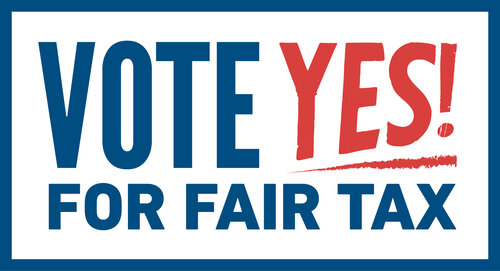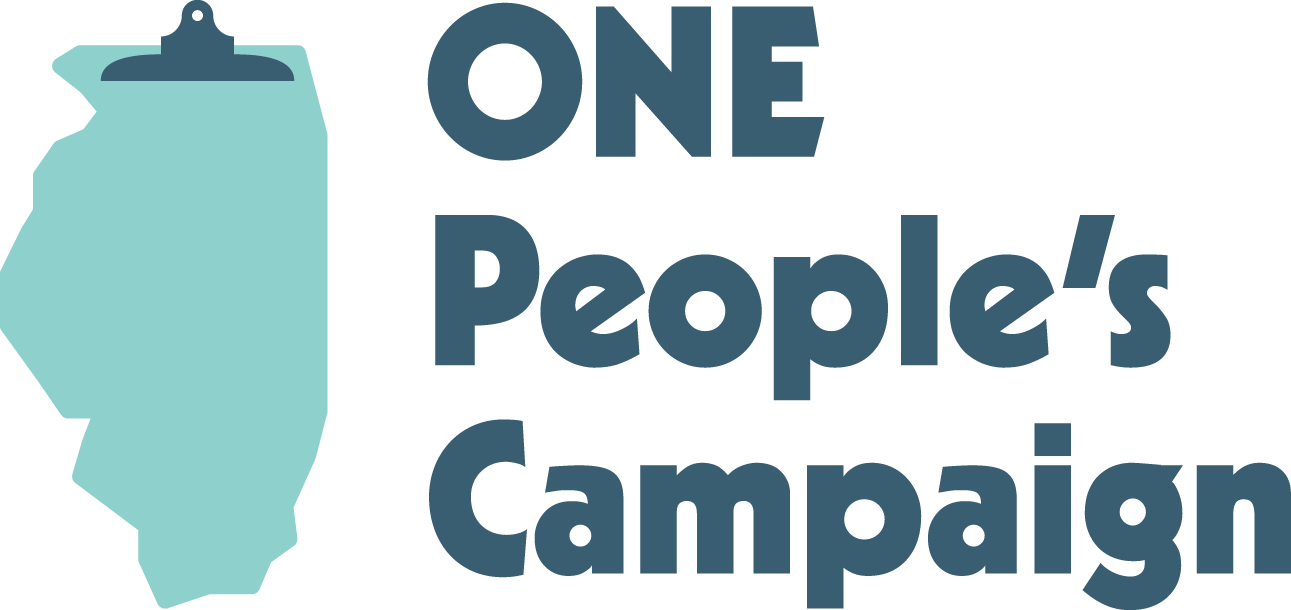Here are our responses to common misconceptions an other frequently asked questions about the Fair Tax.
The opposition is saying that the Fair Tax is a blank check for future tax increases. Is that true?
There is no blank check: voters know exactly what new rates will go into effect when the fair tax amendment is approved. Going forward, fair tax reform doesn’t give legislators any more or less power to change tax rates than they have always had. Fair tax reform does give lawmakers the flexibility to change rates based on income, raising rates for wealthy people who can afford to pay a little bit more, and reducing rates for the middle class and those struggling to get there. Without the Fair Tax, taxes would have to be raised on all Illinoisans by 20% to address our structural deficit.
Won’t the wealthiest Illinoisans leave the state if their taxes are raised?
There is no research to back this claim up. In fact, research shows there is actually no correlation
between a state’s tax rates and the likelihood a high-income family leaves the state. Middle and lower-income Illinoisans have been fleeing the state for years after the Rauner administration left our education system decimated. A fair tax will bring in much-needed revenue to get our state back on track and keep these families in Illinois.
Aren’t pensions the problem?
Illinois’ struggles with meeting its pension obligations are a separate issue. Changes to public worker retirement plans will not fix the fact that those who make the lowest 20% are paying nearly double in taxes as those at the top. People have different opinions on the pension issue, but with or without pension changes, our state needs a fairer tax system that works for everyone.
Can’t we just focus on balancing the budget instead of raising taxes?
Illinois has a structural deficit, which means that we must fundamentally change our revenue system to pay future debts and avoid drastic cuts to government. If the Fair Tax did not pass, Illinois would have to raise taxes on everyone by 20% OR cut spending on critical programs by 15%.
Even if we have more revenue, how can we trust that Illinois state elected officials will use it for the right things, like education and affordable housing?
Winning the Fair Tax is the first step in building an Illinois that fully funds our communities, but our work won’t be done after its passage. We’ll need to continue to organize to make sure those funds are used for the programs and services our communities need. And in February 2020, Pritzker released a proposal for how the money would be spent, including increases to education and social services like DCFS. Without the Fair Tax, we won’t even have the chance for funding increases to the areas we care about and will see cuts instead.
Won’t the Fair Tax hurt small businesses?
Unless you are a small business owner making more than $250,000 a year in profit, you will not see an income tax increase. Under the Fair Tax, 97% of small business owners will see no increase at all. Businesses want a stable fiscal environment, an educated workforce, and a place where employees want to live, work and raise a family. The Fair Tax will help make that a reality.
Will the Fair Tax tax retirement income?
The Fair Tax maintains tax exempt status for all retirement earnings: Social Security, pensions,
IRAs, et all. The Fair Tax does nothing to impact or make it any easier to change that tax exempt status. The AARP has endorsed the Fair Tax. Opponents of the Fair Tax, like the Illinois Policy Institute, want to eliminate both Social Security and defined-benefit pensions for retirees. Other opponents in the business community have argued for defeating the Fair Tax, which will then force the state to tax retirement earnings & other regressive measures.

